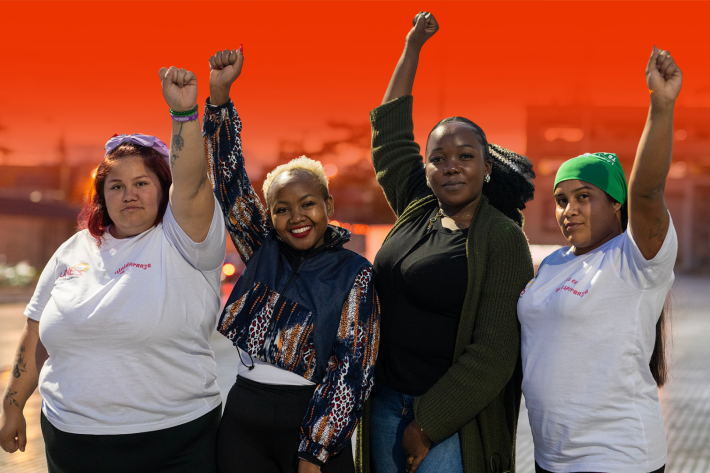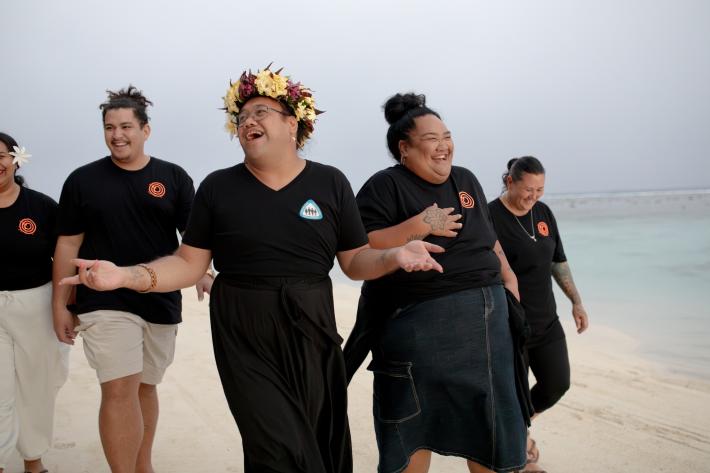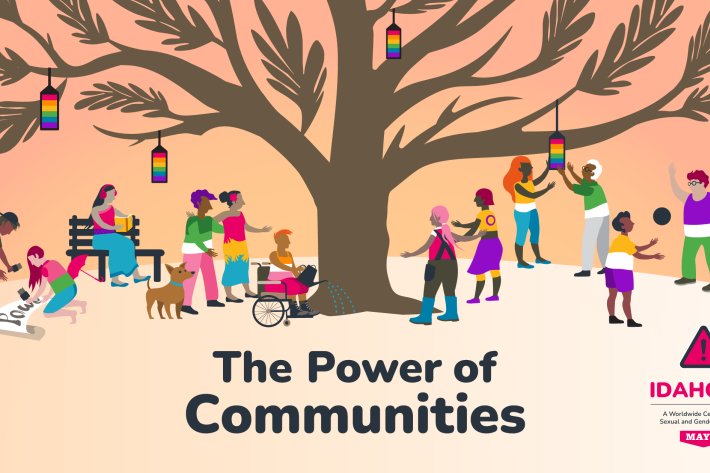
Spotlight
A selection of news from across the Federation
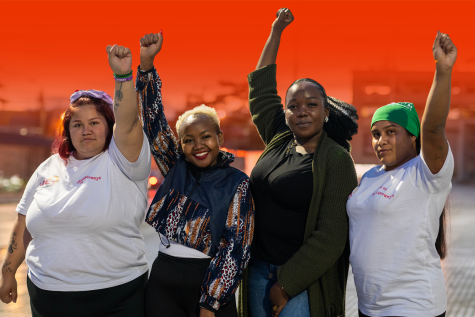
We Made It a Charter: IPPF’s Declaration of Values
Proud, bold, and united: we are values-led.
Filter our news by:


| 16 July 2021
IPPF considers legal action against UK Government's decision to cut IPPF’s funding
London, Friday 16th July 2021 - The International Planned Parenthood Federation (IPPF) has today revealed it has sent a pre-action letter to the Government following the Foreign, Commonwealth and Development Office's (FCDO) termination of IPPF’s ACCESS project funding, based on the Government’s unlawful decision to cut the foreign aid budget. The UK's foreign aid spending is enshrined at 0.7% of GNI in the International Development (Official Development Assistance Target) Act 2015. The Government’s cuts, which reduce aid contributions to 0.5% of Gross National Income (GNI) and amount to a staggering £4.5 billion, will have a catastrophic impact on millions of the world's most vulnerable people, especially women and girls who have now been consigned to a bleak and uncertain future. Having sought legal advice, IPPF believe that the Government's unilateral decision to reduce the percentage of GNI without amending the primary legislation under the International Development (Official Development Assistance Target) Act 2015 is unlawful, making any decision of the FCDO based on the cuts unlawful too. Under the proposed aid reduction, the IPPF is expected to lose £14.2 million in funding over the next three years despite an Accountable Grant Agreement (AGA) with the FCDO to support sexual and reproductive health service delivery until December 2023. Under the AGA, the FCDO was committed to providing up to £21 million for the U.K. Aid Connect ACCESS Consortium's efforts to enhance the sexual and reproductive health rights of some of the world's most marginalised and underserved people, including those living in extreme poverty, those living in humanitarian crises and those affected by HIV and AIDS. The consortium, led by the IPPF, specifically focused on providing support to groups in Lebanon, Mozambique, Nepal and Uganda. The vote taken on Tuesday in the House of Commons was not capable of legally amending the primary legislation, a necessary step for making the cuts lawful. Unless the Government reverses its position, IPPF will proceed with filing for a judicial review. Dr Alvaro Bermejo, Director-General of the International Planned Parenthood Federation, said: "Since IPPF became aware of the Government's plans to slash the U.K.'s aid budget, it has taken every opportunity to demonstrate the unlawfulness of these cuts and the catastrophic impact they will have on millions of women, girls and marginalized people worldwide, and the thousands of lives that will be lost in the process. "Sadly, the Government has not heeded our warnings, instead choosing to terminate the ACCESS grant. This means IPPF has been forced to send a pre-action letter to the Secretary of State, seeking an urgent review of the decision. We were further disappointed with yesterday’s motion in the House of Commons to introduce long lasting changes without going through due legislative process. "IPPF has not taken this decision lightly. This action is about fighting the injustice of the Government's ruling on behalf of the women and girls we serve and honouring the intent of IPPF and its member associations." In addition to the decision IPPF is seeking to have reviewed, the Government’s unlawful cuts to the foreign aid budget have had wider effects on IPPF. In total, IPPF could lose up to £72 million in funding over the next three years despite a commitment from the FCDO to support sexual and reproductive health care delivery. The loss of funding for IPPF means massive reductions and the potential closure of the U.K.'s flagship WISH (Women's Integrated Sexual Health) programme. This hugely successful initiative delivers life-saving contraception and sexual and reproductive health services for women and girls in some of the world's poorest and most marginalized communities. If allowed to continue operating until 2023, it would prevent an additional 7.5 million unintended pregnancies, 2.7 million unsafe abortions and 22,000 maternal deaths. Without additional funding, IPPF will be forced to close services in Afghanistan, Bangladesh, Zambia, Mozambique, Zimbabwe, Cote D'Ivoire, Cameroon, Uganda, Mozambique, Nepal and Lebanon and may be forced to close services in an additional nine countries, withdrawing support for sexual and reproductive health services from approximately 4,500 service delivery points globally. Sadly, it will also mean the loss of over 480 IPPF staff supporting SRH service delivery in the FCDO supported countries. IPPF invites the Secretary of State to reinstate the aid budget and confirm the Government's commitment to the 0.7% aid target as a means of keeping its legally binding promises to millions of people worldwide. Notes to Editors: The International Planned Parenthood Federation (IPPF) is a UK based charity committed to providing sexual and reproductive support to the world's most under-served communities. The IPPF operates in 142 countries, relies on volunteers and regularly receives financial support for national governments to support their global work. Under the FCDO's unlawful reduction of UK foreign aid contributions to 0.5% of Gross National Income, the IPPF is expected to lose £14.2 million earmarked for support to vulnerable communities in Lebanon, Mozambique, Nepal and Uganda. The IPPF’s case against the Government is independently financed and no taxpayer money is being used to fund legal costs.

| 02 July 2021
IPPF announces new commitments to Sexual and Reproductive Health and Rights (SRHR) at the Generation Equality Forum
The Generation Equality Forum (GEF) is a global multi-stakeholder platform to reignite the worldwide commitment for gender equality, convened by UN Women and the governments of Mexico and France. The Forum kicked off in Mexico City, Mexico, on 29 – 31 March 2021, and culminated in Paris, France, on 30 June – 2 July 2021, with the aim of securing a set of concrete, ambitious, and transformative commitments to achieve irreversible progress towards gender equality; bringing together governments, civil society organizations, young people-led organizations, the private sector and foundations to define and announce ambitious investments and policies on a range of priority areas, from climate change to sexual and reproductive health and rights (SRHR), gender-based violence, feminist movements, technology and economic justice. IPPF is proud to be one of the co-leads of the Action Coalition on Bodily Autonomy & SRHR, which aims to: Expand access to comprehensive sexuality education (CSE) in and out of school Increase qualitative access to contraception Empower all people, including adolescents and women, in all their diversity to make autonomous choices about their bodies, sexuality and reproduction Strengthen girls, women’s and feminist organizations and networks to promote and protect bodily autonomy and SRHR. IPPF has joined the two collective commitments of this Action Coalition on abortion and CSE. IPPF’s individual commitment at GEF By 2026, IPPF commits to work to accelerate universal access to safe abortion care centered on three principles – rights-based, reproductive justice and gender transformative – with a focus on the following strategies: Expand and improve the provision of abortion care through 102 Member Associations, including quality medical and surgical abortion, person-centered abortion self-care support, and abortion care beyond 12 weeks of gestation through a simplified outpatient model using task-shifting to mid-level providers, including self-managed medical abortion. Fully integrate abortion care into humanitarian preparedness and response as full realization of SRHR, with all IPPF emergency responses providing abortion care as a standard part of the Minimum Initial Service Package (MISP). Advocate for the decriminalization of abortion and the removal of coercive policies and legislation on abortion in 25 countries, and advocate to donor governments and agencies to remove restrictions preventing work and dialogue on abortion, including the permanent repeal of the Global Gag Rule. IPPF is also pleased to announce that it will be working with the Governments of Canada, Denmark, Finland, Germany, Japan, New Zealand, Norway, Sweden and the Netherlands to help realize universal access to sexual and reproductive health and rights and CSE. IPPF’s Director-General, Dr Alvaro Bermejo, said: “Since Beijing, progress has been made towards gender equality, yet not a single country can claim to have achieved it. It’s simple; women and girls cannot wait any longer to live a life free from discrimination, free from gender-based violence and free from harmful patriarchal gender norms – we must replace rhetoric with meaningful action. "As co-leaders of the Action Coalition on Bodily Autonomy and SRHR, we are convinced that you cannot achieve gender equality without SRHR, and urge that it be at the center of policies and decision-making processes. IPPF, alongside its partners and Member Associations, will turn our commitments into meaningful action that accelerates our shared goal of achieving gender equality.” IPPF’s Global Advocacy Director, Anamaria Bejar, added: “Women and girls cannot afford more broken promises. Now is the time to renew our determination to make the Beijing Platform for Action a reality for every woman and girl in the world, to live with dignity and reach their full potential. That is why IPPF wholeheartedly support the Generation Equality Forum and what it stands for. Together, we can meaningfully work towards gender equality in our lifetime.”

| 30 June 2021
IPPF at the Generation Equality Forum
What is the Generation Equality Forum? The Generation Equality Forum (GEF) is a civil society–centered, global gathering for gender equality, convened by UN Women and co-hosted by the governments of Mexico and France. The Forum kicked off in Mexico City, Mexico, on 29–31 March 2021, and will culminate in Paris, France, on 30 June – 2 July 2021. This Forum aims to promote the full implementation of the Beijing Platform for Action in the framework of the commemoration of its 25th anniversary, which was unanimously adopted by 189 countries around the world. Why is it important? The GEF presents a great opportunity for different multi-stakeholders to reignite the Beijing agenda and to embrace this global movement, bring the change needed and make concrete and strategic commitments to build back better and to ensure that gender equality is an aspiration for the present generation and a reality for future generations to come. The Generation Equality Action Coalitions are innovative and multi-stakeholder partnerships focused on the most intractable barriers to equality. Their aim is to deliver concrete and transformative change for women and girls around the world in the coming five years that, if implemented and fully funded, can lead to lasting and transformative change and help to ensure that women, girls, and gender diverse people everywhere can fully enjoy their human rights. They will focus on six themes that are critical for achieving gender equality: gender-based violence, economic justice and rights, bodily autonomy and sexual and reproductive health and rights, feminist action for climate justice, technology and innovation for gender equality, and feminist movements and leadership. What role does IPPF have at GEF? IPPF is co-leader in the Bodily Autonomy & Sexual and Reproductive Health & Rights Action (SRHR) Coalition, where IPPF contributed to four fundamental actions: 1) Expand access to CSE in and out of school; 2) Increase qualitative access to contraception; 3) Empower all people, including adolescents and women, in all their diversity to make autonomous choices about their bodies, sexuality and reproduction; 4) Strengthen girls, women's and feminist organizations and networks to promote and protect bodily autonomy and SRHR. IPPF's commitments Although important steps were taken, and some progress achieved, the Beijing Platform for Action is far from being implemented. Many obstacles like absence of political will, lack of financial commitment, rigid, restrictive and patriarchal gender social norms and backlash to women's and girls' rights and fundamental freedoms, in particular their participation in social, economic and political life, the right to their bodily autonomy and sexual and reproductive rights, discrimination and sexual and gender-based violence have been the reality in every corner of the world. But the paradigm is changing, and different social movements have revitalized the discussions and women and girls are very much in the agenda of governments, civil society organizations, private sector and academia. In Paris, IPPF will commit to accelerate access to safe abortion care centered in three principles- right base, reproductive justice and gender transformative, and to influence change in laws and ensures that abortion is decriminalized and barriers, including to self-managed abortion, are removed. And to collaborate and build a strong, united voice to promote finance comprehensive sexuality education in and out of school, via evidence-based modalities. With our Member Associations at the center, IPPF will present a progressive and aspirational proposal aligned with its organizational vision and that will face great challenges; however, it is well worth it; advancing gender equality with full respect and recognition of all sexual and reproductive rights of girls, adolescents and women is IPPF's ultimate goal.
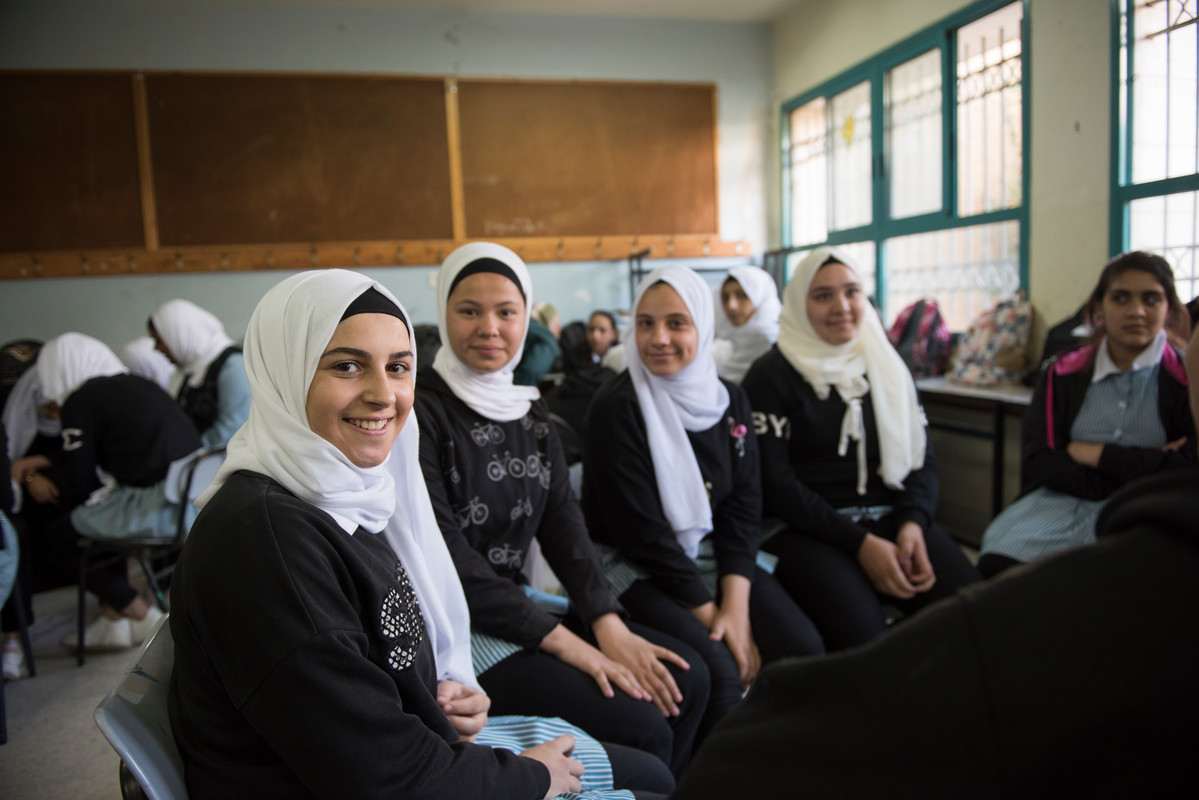
| 11 June 2021
IPPF hosts G7 SRHR Ministerial Roundtable
IPPF hosted a G7 Ministerial Roundtable entitled Empower Women and Girls, Empower Humanity: Bodily Autonomy and Sexual and Reproductive Health and Rights (SRHR). The roundtable facilitated a meaningful dialogue on the importance of keeping SRHR commitments that G7 countries have made to the women and girls left behind, ensuring that SRHR and bodily autonomy are central to reaching Universal Health Coverage (UHC) and the Sustainable Development Goals (SDGs). The roundtable was sponsored by Foreign Commonwealth and Development Office United Kingdom (FCDO) and Global Affairs Canada, with participants from UK, Germany, USA, France, Japan, Canada, Australia, India, and South Africa. Karina Gould, Minister of International Development for the Government of Canada said: “It is more important than ever to ensure that women and girls have control over their bodies, and do not face additional vulnerabilities, discrimination and violation of their rights. We need to see an integrated effort to better enable our health systems to respond to the pandemic while continuing to address the needs of women and their families.” Keiichi Ono, Assistant Minister and Director-General for Global Issues for the Japanese Ministry of Foreign Affairs added: “COVID-19 has exacerbated the plight of vulnerable people. Reaching the most vulnerable people first is key to realizing universal health coverage and to ensuring an effective gendered response to COVID-19 that includes Sexual and Reproductive Health and Rights.” IPPF would like to thank those who contributed to the invigorating and inspirational event, and we look forward to continuing our collective push in ensuring bodily autonomy and SRHR remain central to UHC and the SDGs.








